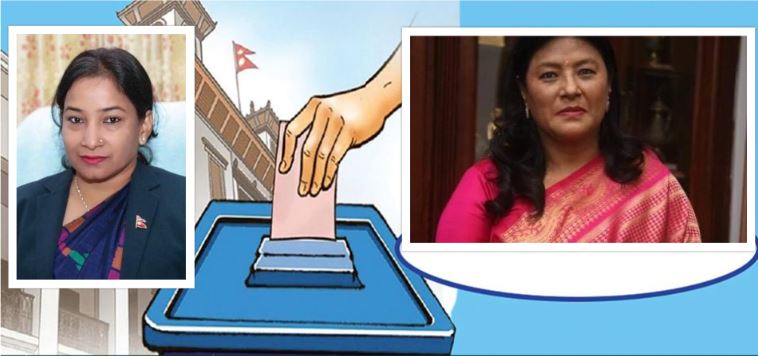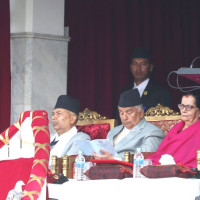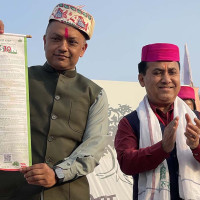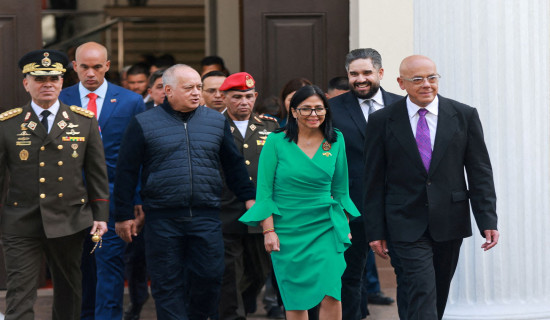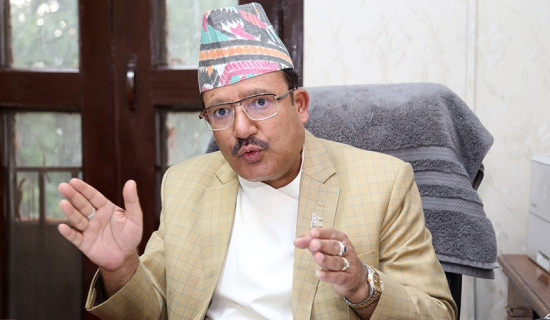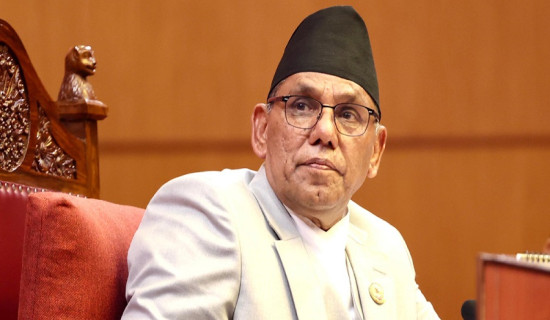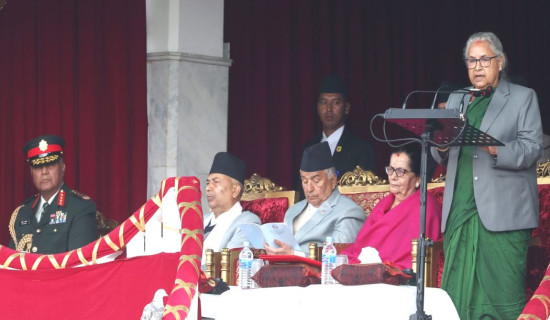- Thursday, 19 February 2026
Hard to retain last election's achievements with less women candidates this time
By Sanchita Ghimire, Kathmandu, April 26 (RSS): The number of women candidates will be less in the upcoming local level election in the absence of the provision requiring that either the chief or the deputy chief of the local level should be a woman.
Especially in the last local level
elections held in 2017, nearly 98 per cent of women were elected either to the
post of deputy mayor of the metropolises, sub-metropolises and municipalities
and the deputy chief of the rural municipalities. But in the upcoming election, the number of elected women to the local levels is likely to decrease as this
provision seems not to have come into play this time.
This probability is further high as
the candidates to the post of chief and deputy chief of most of the local
levels are from different parties due to the electoral coalition and seat
adjustment among the parties this time. As a result of this, candidates to both
the posts in a majority of the local levels are male.
Although there is the provision
that the candidates of the same party vying for the post of chief and deputy
chief of the local body should belong to a different gender, it is not compulsory in
case the candidates are from different parties. It is seen that women have got
fewer opportunities to stand as candidates in posts other than the post of ward
member which has been specified by the Constitution.
It is seen that the mainstream
national political parties have provided fewer opportunities to women in the post
of ward chair.
However, the number of women
aspiring to file their candidacy has significantly increased in all the parties
this time. The parties had recommended a large number of women to file candidacy
for the post of ward chair to the mayor/deputy mayor of metropolises,
sub-metropolises and municipalities and chair/deputy chair of rural municipalities.
Most of the women who were elected to the post of deputy chair in the last
election had staked their claim to the post of chair this time. Among them,
only a few got the opportunity.
Women leaders of the major parties
opined that a situation has come in which women's participation is going to
decrease at the local level this time compared to the last election due to the
provision requiring parties to field a woman candidate for either of the post of
chief or deputy chief of the local body not coming into play this time.
Women organizations affiliated with
the political parties had lobbied in their parties for fielding as many women candidacies but in vain.
CPN (UML) central member Nirudevi
Pal said although the women's candidacies overall seem to have decreased, it
has increased somewhat in her party. Compared to the last local election, the
candidacy of women for the post of chief of the local body has increased in UML this
time, she said. "Obviously, our party has fielded women candidates to the
post of deputy chiefs in local bodies where males have been fielded to vie for
the post of chiefs. There are women candidates vying for the post of the chair at
several local level wards," Pal said.
With the increasing participation
of women, women's self-confidence is also found increasing, she added.
Earlier, women leaders in the
Nepali Congress had raised voices, saying that there should not be candidacy of
men in both the mayor and deputy mayor posts after NC decided to go for an election
making an alliance.
Whip of the NC Parliamentary Party,
Pushpa Bhusal, opined that although they had raised their voices, the number of women
candidates in the post of mayor and deputy-mayor is less.
She added there would be less
number of women candidates in the election due to alliance unless there is a
mandatory provision in the law.
Leader Bhusal said, "The
number of aspirant women to compete in this election is remarkable and it will
further increase in coming days".
Out of the women recommended for
the election, the least number of women have got the opportunity to fight in the
election.
Chairperson of All Nepal Women's
Association (Revolutionary), Amrita Thapa, shared that the CPN (Maoist Centre)
has got the post of deputy-mayor in many places and of them, all the candidates
are men.
Although 40 per cent of women were
elected in the previous election, overall participation of women has decreased in
the election as less number of women are competing in the post of deputy-mayor this
time.
Leader Thapa said the party
repeated the male face that won the last election being based on the agreement
among the parties in the electoral alliance to allocate the local level to that
party winning the previous elections.
The previous election was
significant in view of the women’s participation, she said, underlining the
need of working to ensure women's leadership throughout the election. “But the
existing scenario shows it is hard to achieve this.”
In view of CPN (Unified Socialist)
leader Dilu Pant, parties are reluctant to accept the women’s candidacy for the
post of mayor as they doubt women’s victory in the election.
Women are deprived of the opportunity
to contend in the election due to social construction. Women’s unofficial
political meetings with men are not encouraged by the society and it is one of
the reasons depriving them of an opportunity to lobby for the tickets.
She complained that those women who are
already on the upper political committee don’t advocate and encourage women’s involvement in the electoral race.

